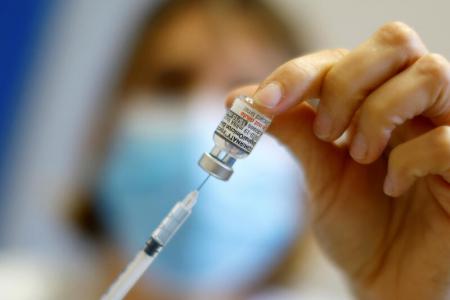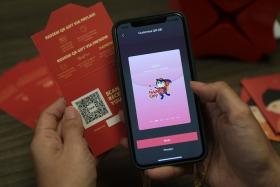More Chinese tourists visit S’pore for mRNA vaccines
More tourists from China are visiting Singapore clinics to get vaccinated against Covid-19 with mRNA vaccines, as leisure travel between the two countries resumes after nearly three years.
Healthcare chain Raffles Medical, which operates 34 clinics in Singapore, said last week it has noticed a steady flow of visitors from China coming to get Covid-19 jabs here since the latest bivalent vaccine by Moderna was rolled out here, with an increase of about 5 to 10 per cent seen towards the end of 2022.
Meanwhile, Parkway Shenton said it has seen more Chinese nationals coming for mRNA vaccines, and has received queries from Chinese travel agents about tourists receiving such vaccines.
But Thompson Medical, another large chain, said it has seen no uptick in vaccine demand from Chinese tourists.
This comes as China reopens its borders and scraps quarantine requirements, effectively allowing leisure travel to resume for its 1.4billion citizens after nearly three due to its Covid-19 policy.
In response to queries, the Ministry of Health (MOH) said on Wednesday that those on short-term visit passes here, which includes most tourists, can purchase vaccines at non-subsidised rates under Singapore’s Private Vaccination Programme.
The programme began in April 2022 to cater to those who do not qualify for the National Vaccination Programme.
MOH said that, as of Jan 1, 2023, around 3,000 doses have been administered and that of these, 95 per cent went to short-term visit pass holders.
MOH added that it monitors the number of vaccine doses that are administered through the programme, and it has not observed a significant increase in the number of doses administered under the PVP in December 2022.
It added that there is sufficient stock available for Singaporeans and residents under the National Vaccination Programme.
Parkway Shenton added that it is consolidating enquiries and working with the relevant stakeholders to secure the necessary vaccine stocks.
It said that the mRNA vaccines offered under the Private Vaccination Programme come from a different pool than those that supply the National Vaccination Programme.
The healthcare chain also added that Public Health Preparedness Clinics (PHPCs), which provide vaccines under the Private Vaccination Programme, are not participating in the national programme nor providing any other Covid-19 vaccines.
At Raffles Medical, a Moderna bivalent vaccine dose costs $140.40. To get one, one must be at least 18 years old and produce their vaccination record to be advised of eligibility.
A Raffles Medical spokesman said last week: “We expect a steady increase as Chinese Nationals begin their overseas travelling again. Some possible push factors include the need to maintain their fully-vaccinated status depending on the countries that they are travelling to, and to stay protected against Covid-19.”
Parkway Shenton’s medical director Dr Edwin Chng attributed the interest in the vaccine from Chinese travellers to the lack of access to non-mRNA vaccines in their home country.
He said: “They want to get better protection with mRNA vaccines.”
mRNA vaccines, like the ones manufactured by Pfizer and Moderna most Singaporeans have received, are not readily available in mainland China, which has mostly administered its home-grown Sinovac and Sinopharm vaccines.
These use the traditional inactivated virus technology and are generally understood to be less effective than mRNA vaccines.
Inactivated vaccines - an older technology used in the polio and influenza vaccines, among others - are made up of dead viruses, unlike mRNA vaccines, which use just parts of the virus’ genetic material to stimulate an immune response.
Studies here and abroad have found that mRNA vaccines stimulate a stronger immune response to the Covid-19 virus than inactivated vaccines, though inactivated vaccines have been shown to prevent severe disease.
China is currently in the grip of a surge of Covid-19 cases, brought on in part by the relaxation of tight restrictions.
Infectious diseases specialist Dr Leong Hoe Nam told The Straits Times on Thursday that Singapore and its low Covid-19 death rate are viewed by many as reputable, which may be an important factor for many Chinese deciding to come here for the vaccine.
He said: “They may also trust in Singapore’s healthcare system, with its high level of transparency, and Singapore is a tourist destination, so they may also want to kill two birds with one stone.”
Get The New Paper on your phone with the free TNP app. Download from the Apple App Store or Google Play Store now


